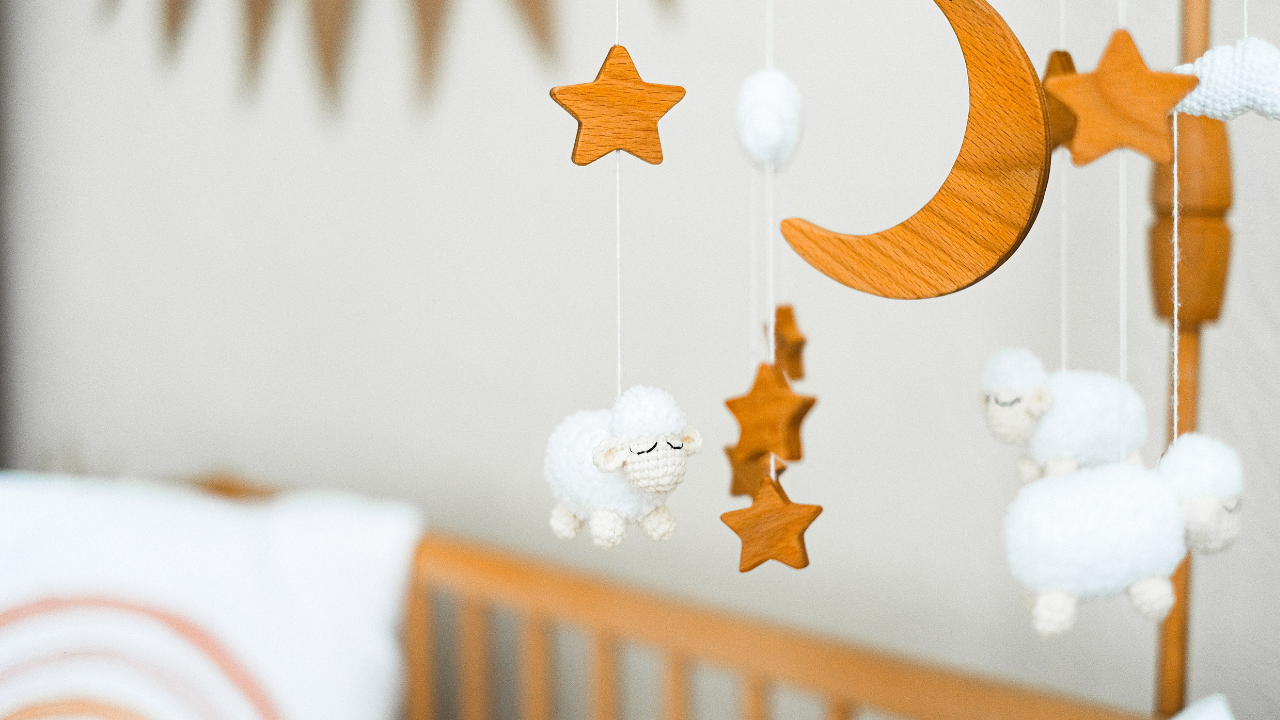5 Reasons for Short Naps
Feb 02, 2025
Are you struggling with those pesky 30-45 minute naps? I know how frustrating it can feel to finally ger your baby down for a nap only for them to wake up shortly after.
Here are 5 reasons why your baby may be taking short naps. In this case, a short nap is anything less than one hour long.
5 Reasons for Short Naps
-
Sleep Environment
One reason your baby may be taking short naps is their sleep environment. While your newborn may have easily napped in a bright noisy room, this can change around 2 months old. Babies become more alert and aware of their surroundings. They are also more susceptible to overstimulation at this age. For these reasons, it can be helpful to move naps into a very dark room with a sound machine to drown out noise. Blackout curtains/blinds are a must!
-
Nap Schedule Issue
Another reason your baby may be taking short naps is a scheduling issue. An overtired or undertired baby is most likely going to take a short nap. Follow age appropriate wake windows and ensure your baby is getting adequate daytime sleep for their age.
-
Sleep Associations
Huge culprits of short naps are sleep associations. If your baby needs assistance falling asleep at nap time, they are most likely going to need that assistance again if they wake up between sleep cycles. A nap sleep cycle is typically around 30-45minutes. Babies often have little mini wake ups in between sleep cycles. If your baby needs a lot of assistance falling asleep at the beginning of nap time, it is more likely that they have a full wake up in between sleep cycles. A few sleep associations that can lead to short naps are rocking/feeding/patting to sleep, laying with your baby until they fall asleep, or laying your baby down drowsy.
-
Hunger
Your baby may also be waking from a short nap because they are hungry. We want to make sure we are getting feeds in every 2-3 hours during the day. In the newborn months, an eat-wake-sleep can work well. Newborns are typically only awake for about an hour at a time. With an eat-wake-sleep cycle they wake up, take a feed, have some awake time, and then go down for a nap. Because of their short wake windows, they will have just had a feed in the last hour by the time they are going down for a nap. This means they have some time for a proper nap before needing another feed.
As your baby gets older, an eat-wake-sleep cycle can lead to short naps. For example, if your baby is starting to stay awake for 2 hours at a time, they are going to be hungry and ready for a feed shortly after they go down for their nap.
At this point, I suggest adjusting your routine and moving feeds closer to nap time. I highly recommend continuing to keep feeds OUT of the nap time routine. If your baby is relying on a feed to fall asleep for a nap, this will not help lengthen naps. But you can move the feed closer to nap time to ensure they have a full belly before going down.
-
Age
This one can be a tough pill to swallow. Some babies just aren’t developmentally ready to lengthen naps independently until closer to 5-6 months old. I know this can feel frustrating. Here are a couple of things you can do to help your baby lengthen their naps as soon as possible:
-Rock them back to sleep or finish off with a contact nap if they wake up after less than one hour
-Teach them to fall sleep independently if they are 4+ months old
Ready to work on lengthening naps with your 4+ month old? I work with families to create individualized step-by-step plans to optimize daytime sleep, teach independent sleep initiation, lengthen naps independently, and cut down on night awakenings. Click here to get your baby napping.
Looking for some individualized one-on-one support? Schedule your consultation call today.
Stay connected with news and updates!
Get free weekly sleep tips delivered straight to your inbox.
We hate SPAM. We will never sell your information, for any reason.
